Solar panel guide: everything you need to know
According to our 2023 Home Improvement Trends Report, 48% of homeowners are finding ways to renovate more sustainably this year. This means that becoming more eco-friendly is still a big priority for many homeowners around the UK.
Alongside heat pumps and other renewable energy home upgrades, solar panels are a popular option for homeowners that want to reduce their carbon footprint and cut down on their energy bills. Find out whether solar energy could work for your home and the benefits solar panels bring, below.
When you’re ready, you can then hire a solar panel insulation specialist to help you make your home more energy efficient.
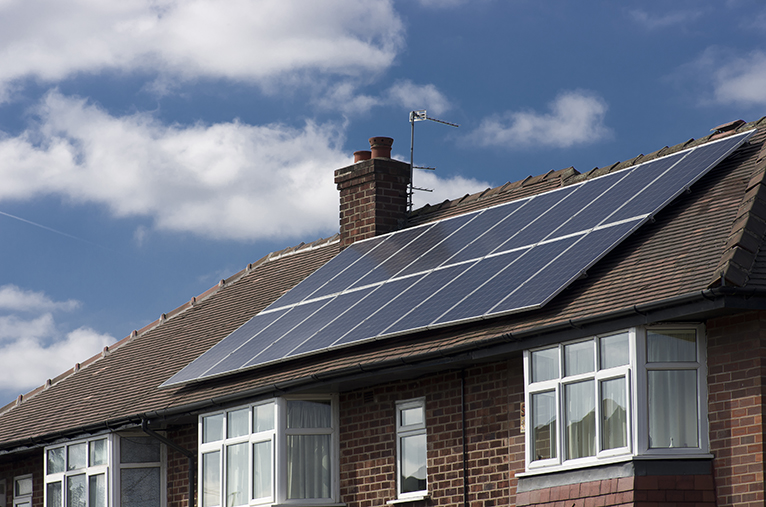
How do solar panels work?
There are two main types of solar panel. Solar electricity panels capture the sun’s energy and turn it into electricity for your home. They’re commonly known as solar PV panels (photovoltaics). These panels generate roughly 355W of energy in strong sunlight.
On the other hand, solar thermal panels capture the sun’s energy, but convert it into energy that heats up water for your home instead. These panels are made of either flat plate collectors or evacuated tubes (glass tubes).
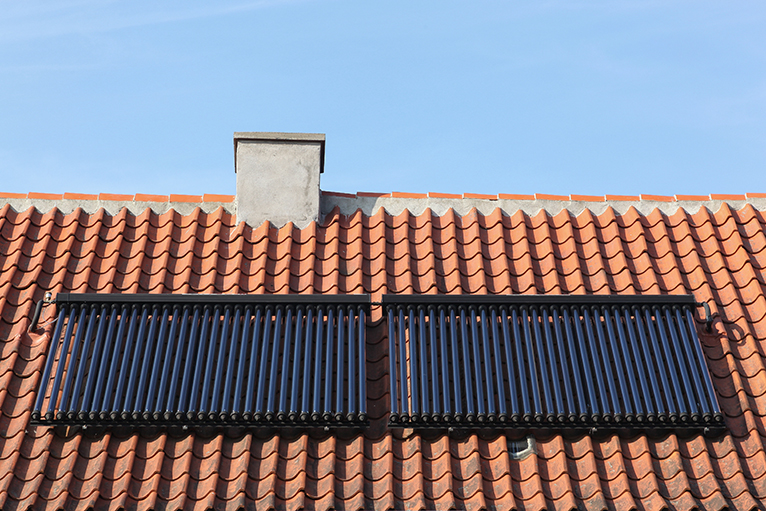
How are solar panels installed?
An installer that’s accredited with the Microgeneration Certification Scheme (MCS) is best placed to complete the installation. MCS is a quality assurance scheme for tradespeople installing low-carbon energy technology. Through MCS, you can be sure that your solar panel installer is working to high standards.
You can opt for:
In-roof
In-roof (or integrated) solar panels are installed by removing some of your roof tiles and fitting the panels in their place. The panels sit flatter against your roof than on-roof ones do. But, they are often more expensive to install.
On-roof
On-roof solar panels are installed by fitting anchors onto the roof. The panels are then mounted onto the anchors. This is the most common type of solar panel installation.
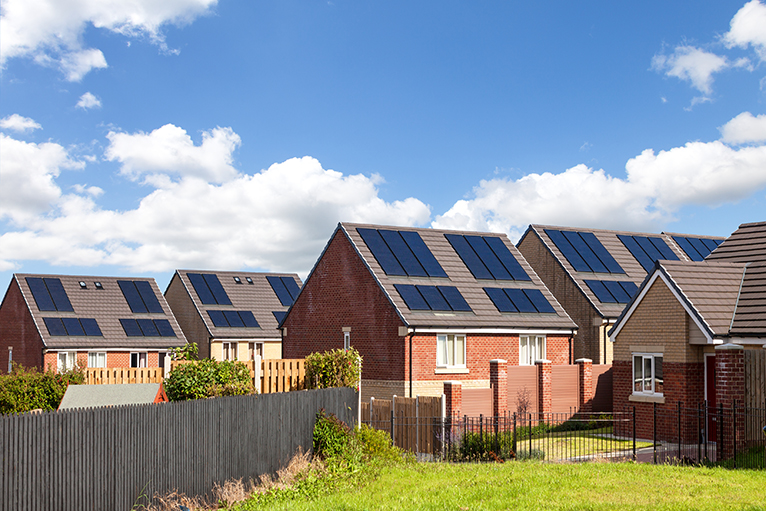
Can solar panels be installed on all types of roof?
To generate the most power, solar panels should be installed on true south facing roofs. If your roof faces west or east, it might still be eligible (though solar panel systems installed in these directions tend to generate 15-20% less energy than on roofs facing south). We don’t recommend you install a solar panel system on a north facing roof.
Solar panels can be installed on many types of roof, including concrete tile, clay tile, metal and flat roofs.
Concrete tile roof
If you have an older roof, some of the tiles may break during the installation process and you’ll need to pay to replace them.
Clay tile roof
Some installers won’t fit solar panels on clay roofs because the tiles are often very fragile, but it’s worth speaking to a couple tradespeople to see if they’re willing to do the work.
Metal roof
One benefit of fitting them on a metal roof is that they’ll help to keep your home cool during hot weather.
Flat roof
They can also be fitted on flat roofs. However, it’s important to make sure that the panels are tilted high enough to capture the most sunlight.
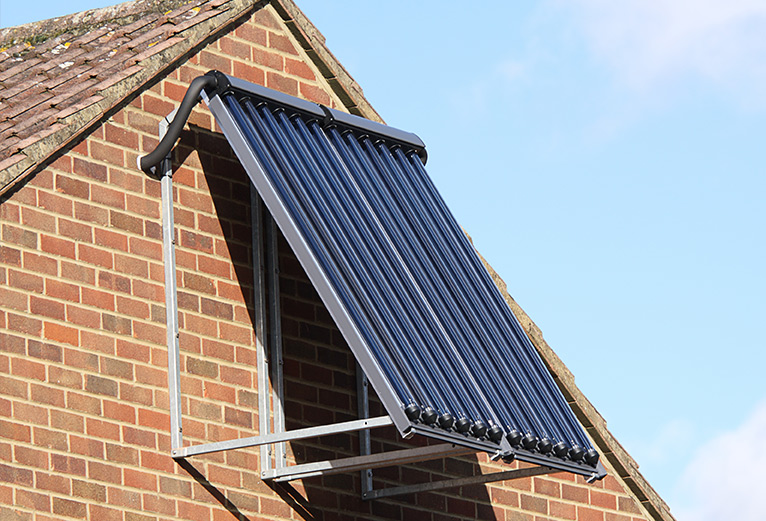
Do I have to install solar panels on my roof?
An alternative to on or in roof mounting is to mount your solar panels on the ground in your garden or on a wall. This is a good alternative if you can’t have them fitted on your roof or need a larger surface area to capture more sunlight than your roof can.
According to the Renewable Energy Hub, ground-mounted solar panels cost around the same amount as roof-mounted ones.
How long do solar panels take to install?
This varies from house to house, but most installations only take one day. Speak to a skilled solar panel specialist to get started today.
Do I need planning permission for solar panels?
In most cases, you won’t need planning permission, if the panels don’t stick out too far off your roof. This is because they’re usually considered a ‘permitted development’. However, if your home is a listed building or within a conservation area, then you’ll need to contact your Local Planning Authority to get planning permission.
In any case, it’s best to double check with your local authority before installing anything. For more information about planning permission, check out our planning permission guide.
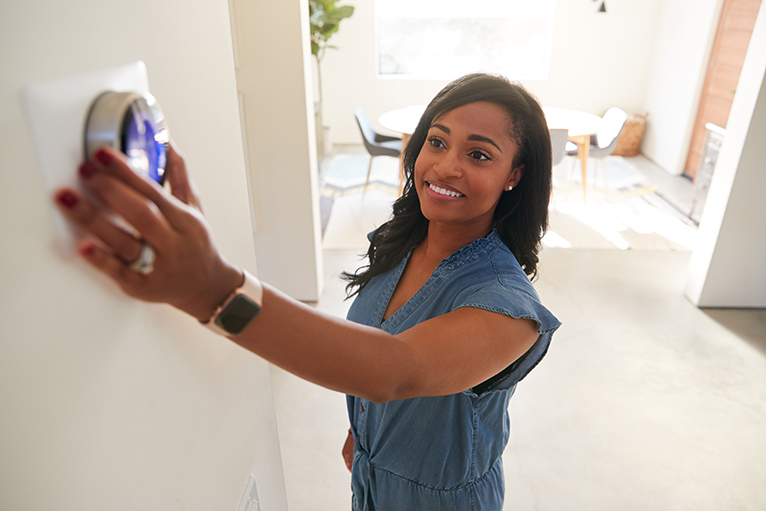
How much do solar panels cost?
Research by TradesmenCosts.co.uk for Rated People found that solar thermal panels cost between £4,000 and £5,000 to install. Solar PV panels cost around £5,500, according to the Energy Saving Trust.
How much you end up spending will depend on the size and type of panels you get, as well as how difficult it is to access your roof. Where you live in the UK will also impact cost of labour, which can rise by up to 20% on average in London and the Southeast. For a more accurate quote, speak to a skilled solar panel installer today.
Do you really save money with solar panels?
Solar PV panels could save you between £325 and £610 every year, depending on your electricity use and where you live in the UK (according to the Energy Saving Trust).
For example, you could save £610 a year by running electricity all day in London, whilst being out all day until 6pm would allow you to save £360 a year. In Aberystwyth, Wales, those figures go from £580 to £335, depending on your energy consumption. In the North of England (Manchester), you could save £550 (home all day), or £325 (out all day until 6pm).
This means that, if you regularly run electricity all day, you could pay back the cost of installation within a decade! It’s no surprise then that solar panels are this year’s third eco home improvement with the highest demand increase, according to our 2023 Trends Report.
With the SEG (Smart Export Guarantee), you can sell excess energy back to the grid, making further money back on your investment! If you don’t sell your excess energy to the grid, your overall annual savings will be lower. You can use this solar energy calculator to predict how much you could save by switching to solar power, depending on where you live.
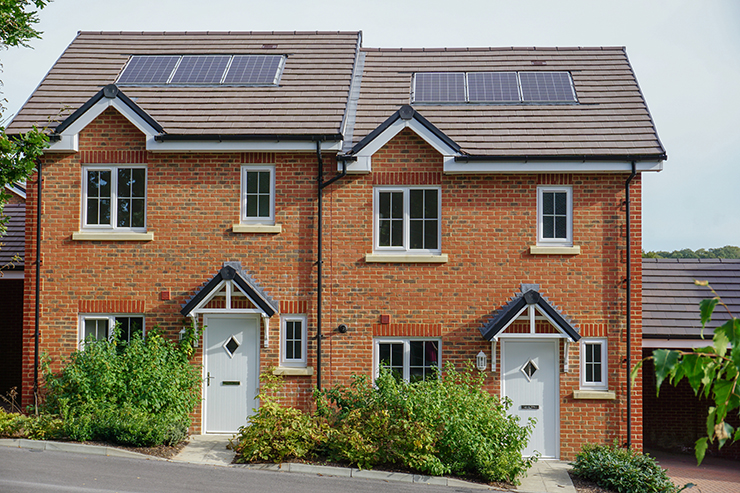
Are there any government grants for solar panels?
Zero VAT
Until April 1st, 2027, households will now pay 0% VAT on any energy-saving materials they’re getting installed, making it cheaper to invest in solar panels. According to the UK Government, this could save a typical family around £1,000 to install, and then £300 a year on their energy bills as well.
ECO4
ECO4 is the latest phase of the Government’s Energy Company Obligation scheme. It’s designed to help low-income families save energy, make homes warmer and reduce carbon emissions. ECO4 allows you to apply to have fully-funded or discounted solar panels installed in your home.
The scheme is open to all UK homeowners who own or rent their property. To find out whether you’re eligible for this grant, fill in this eco-funding questionnaire.
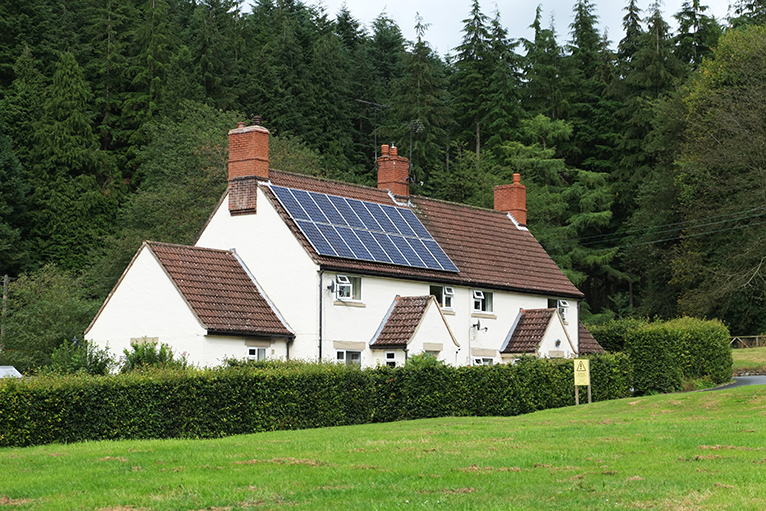
The Smart Export Guarantee (SEG)
Launched in 2020, the Smart Export Guarantee means that energy suppliers pay homeowners for any solar-generated electricity they don’t use (for solar PV panels only). With SEG, a homeowner in London saves £610 annually by running electricity all day. Without SEG, annual savings fall to £500.
To qualify for this, you have to apply to a SEG licensee (an energy supplier that offers an SEG tariff – this doesn’t necessarily have to be the same as your current energy supplier). Find out more on SEG licensees, and see which suppliers offer the best rates to get started.
The Green Deal
The Green Deal is a loan that allows you to spread the cost of your energy-saving home improvements over 10-25 years. It’s designed to encourage homeowners, tenants and landlords to improve the energy efficiency of their properties, and covers a range of eco home improvements, including solar panels.
Loan re-payments are added to your electricity bill. You have to have an electricity meter to be eligible for this scheme. You’ll need to get your property assessed first. This will cost around £100 – £200. You’ll then receive a report with recommendations on which improvements will pay for themselves, alongside estimated cost savings. Once you have this, you’ll then be able to apply for a Green Deal Finance Plan.
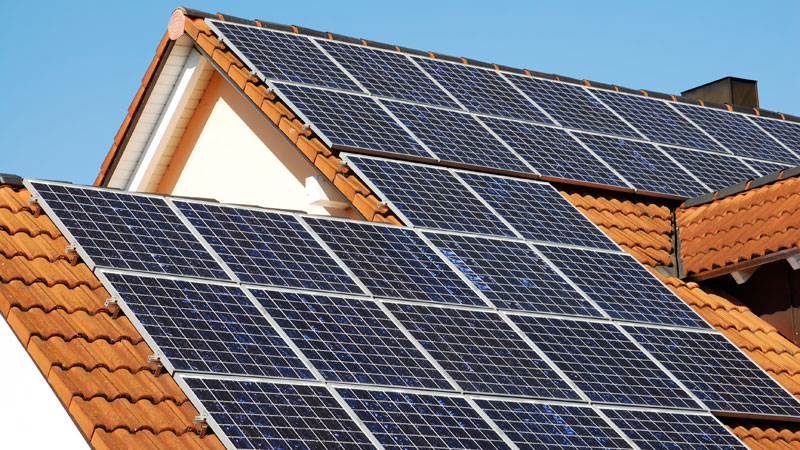
Are solar panels worth it in UK 2023?
Solar PV panels last between 40 and 50 years, with many models offering a warranty to ensure good performance during this time. Solar thermal panels last for an average of 25 years. Both options will pay for themselves over time, making them a good investment for many properties.
Solar panels can still generate electricity or heat on cloudy days. This makes them a viable option for UK homes, despite the inconsistent weather! They’re growing in popularity too, with many homeowners wanting to cut their energy bills and lower their home’s carbon footprint.
According to our 2023 Trends Report, 45% of homeowners are installing eco home improvements this year – up from 25% in 2022! To join the homeowners installing solar panels this year, speak to a skilled solar energy specialist today.




Looking for a person to advise me on my meter for the panels thy don’t give us much money think thy are faults jim
Hi Jim, if you’re just looking for advice, you can ask our expert community of tradespeople your question here: https://www.ratedpeople.com/diy-advice/.
Or if you’re looking to hire a solar panel installation specialist to do some work, you can find one by posting your job on Rated People: https://www.ratedpeople.com/local-solar-panel-installation.
Hope this helps!